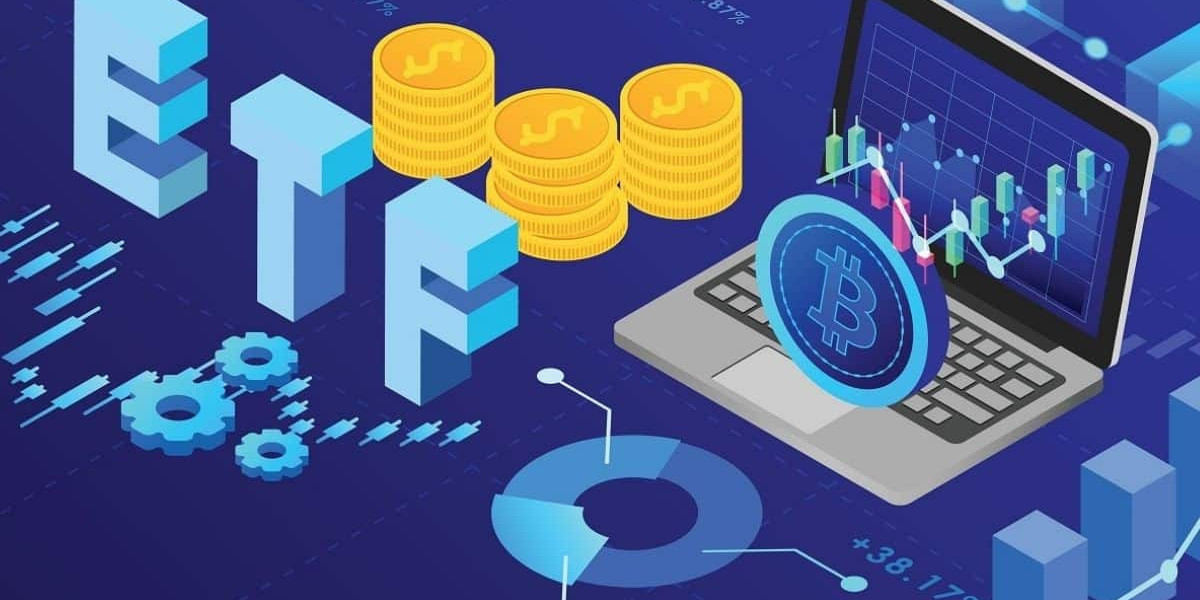The blockchain industry is ever-evolving and continuously expanding. While Bitcoin is the most renowned cryptocurrency, other blockchain-based systems possess the ability to revolutionize data storing and transmission. In this article, we are uncovering the distinct blockchain development platforms accessible to coders and companies wishing to explore this groundbreaking technology. Here, we discuss the features, benefits, and potential utilization of each platform as well as a review of the existing marketplace. Ready to know the potentials of the many options past Bitcoin?
What are Blockchain Development Platforms?
Blockchain Development Platforms (BDPs) are powerful software infrastructures that enable developers to develop and launch blockchain-supported applications, known as decentralized applications (DApps). Through providing resources for setting up smart contracts, digital tokens, and other blockchain features, BDPs empower decentralized networks to perform.
The emergence of blockchain technology came about with the invention of Bitcoin in 2009, and has since evolved significantly, giving rise to an extensive and intricate ecosystem. As blockchain technology develops, more and more BDPs are created to answer the escalating requirement for blockchain-driven apps.
Despite Bitcoin being the most well-known blockchain platform, alternative BDPs have arisen, all having their own special features and capacities. Such substitute platforms present distinctive benefits compared to Bitcoin, thereby making them more and more in demand amongst coders and firms. This blog post covers some of the more common alternative blockchain platforms.
The Rise of Alternative Blockchain Platforms
Bitcoin may have been the first to popularize blockchain technology, but it is far from the last. Thanks to its numerous advantages such as faster transaction speeds, increased scalability, and better smart contract functionality, alternative blockchain platforms have grown to exceed Bitcoin in popularity and usage.
Moreover, the advent of the decentralized application (dApp) ecosystem has enabled the growth of other blockchain platforms designed for developing and deploying such applications. These platforms, specifically crafted to accommodate the unique features and functionality of dApps, ensure the secure and transparent nature of the technology while providing the desired complexity.
The increased use of alternative blockchain platforms indicate the growth of blockchain technology, and its extensive implementation in various industries. As developers and businesses continue to discover and apply this technology, we will witness further advancements in this domain.
Ethereum: The Second-Most Popular Blockchain Platform
When discussing the alternatives for blockchain development, Ethereum is typically near the top of the list. It is the second-most widely used blockchain platform on the globe, succeeding Bitcoin. But what is Ethereum and why has it become so popular?
Firstly, Ethereum offers more than just being a digital currency like Bitcoin. It is a decentralized platform that grants coders the potential to build and manage apps on the blockchain. This unlocks opportunities for inventing smart contracts, decentralized applications (DApps), and complete establishments that are powered by the blockchain.
One of Ethereum's critical components is its smart contract functionality. Smart contracts are autonomous contracts that automatically enforce the stipulations of a deal. These can be applied to everything from digital identifications and voting systems to inventory control and insurance. Because smart contracts are completed automatically, middle-men are unnecessary and transactions become faster and less expensive.
Ethereum also owns its own cryptocurrency called Ether (ETH). This is used to power trades on the network, and can be traded on exchanges just like Bitcoin.
Apart from that, Ethereum's energetic development community is another purpose of its success. There are countless developers working on the platform, building everything from DApps to complicated enterprise-grade networks. The Ethereum Foundation, which directs the development of the platform, funds several efforts to back coders such as funds and hackathons.
In conclusion, Ethereum is a powerful and adaptive blockchain platform that is revolutionizing the way applications and contracts are seen. Its smart contract utility, cryptocurrency, and development community render it an attractive substitute to Bitcoin and other blockchain networks. If you are intrigued by the potential of blockchain development, Ethereum is most definitely worth looking into.
Ripple: The Blockchain for Financial Transactions
Bitcoin was originally devised as an electronic payment system between peers, yet its effectiveness in this role has grown increasingly doubtful. This has instigated the invention of additional blockchain solutions such as Ripple, focused on transactions in finance.
Ripple is based on the Ripple Protocol Consensus Algorithm (RPCA) which expedites the affirmation of operations and compresses settlement times to merely a few seconds. Such velocity makes it a superior choice for worldwide payments and transfers of funds, sidestepping the regular procedures of traditional banking, which are commonly slow and expensive.
XRP is Ripple's own digital asset, usable to catalyze trades on the platform and facilitate inter-currency payments. There has been a continuous uptick in financial bodies and remittance services which have embraced XRP, featuring illustrious companies such as Santander and American Express.
Finally, Ripple's approach to rapid, secure, and productive financial operations has distinguished it among other blockchain advancements, and its increase in use and cooperation with the monetary industry shows that its influence is here to remain.
Stellar: The Decentralized Payment Network
Stellar is an acclaimed blockchain platform that has been particularly constructed to facilitate the transmission of funds and assets without borders. Established in 2014 by Jed McCaleb, one of Ripple's initial founders, Stellar aims to enable people, companies, and banking networks to transmit capital rapidly, economically, and securely.
The Stellar system relies on Lumens (XLM), its native cryptocurrency, as the main medium of value transfer between persons. Besides, Lumens can be utilized as a link asset to mediate trading between two currencies that lack a direct trading pair. To illustrate, when an individual wants to exchange United States dollars to someone in Japan who wishes to get Japanese yen, the exchange can be done using Lumens as an intermediary.
Stellar is composed of a decentralized trading protocol that makes it possible to issue, barter, and reclaim any asset, consisting of currencies, goods, and tokens. Therefore, this feature makes Stellar an apt platform for micropayments, international payments, and remittances which require short-lived clearance times and lower costs.
The Stellar Consensus Protocol (SCP), a decentralized consensus mechanism, guarantees that every transaction is validated and accorded to by a cluster of nodes. Consequently, the system is highly invulnerable to hacks and breakdowns and all transfers are secured and impervious to alterations.
Furthermore, Stellar's well-established developer community has developed various applications and tools for executing on the platform, including wallets, payment gateways, and even a decentralized exchange known as StellarX.
Hyperledger: The Blockchain for Enterprises
Hyperledger is a revolutionary blockchain platform created by the Linux Foundation to enable enterprises to develop their own decentralized applications (DApps) and solutions. It provides a modular architecture that makes it easy for developers to build their own blockchain solutions and has been designed to support multiple programming languages, allowing for it to be highly scalable for large-scale enterprise applications. Furthermore, Hyperledger boasts advanced security features such as role-based access control, identity management, and confidentiality which makes it well-suited for industries requiring strict security measures like finance, healthcare, and government.
It is also home to various important features such as Hyperledger Fabric, a permissioned blockchain platform for distributed applications, Hyperledger Sawtooth, a modular platform for distributed ledgers and smart contracts, Hyperledger Composer, a framework for constructing business networks using Hyperledger Fabric, and Hyperledger Burrow, a blockchain implementation for smart contract execution. Hyperledger has proven to be popular among enterprises, and notable companies such as IBM, Intel, and JPMorgan Chase have already adopted it for use in multiple industries, such as supply chain management, healthcare, and finance.
Good Read:- Cost To Create a Blockchain App
EOSIO: The High-Speed Blockchain for DApps
When it comes to developing decentralized applications (DApps), speed is critical. Enter EOSIO, a high-speed blockchain platform that has been specially designed for DApps.
Launched in 2018, EOSIO is already creating a buzz in the blockchain community due to its unparalleled consensus and scalability. It uses a delegated proof-of-stake (DPoS) consensus system, which enables fast block confirmation times and higher transaction throughput. This implies developers can construct DApps on the EOSIO platform that can manage large amounts of transactions with little delay.
A major feature of EOSIO is its ability to carry out parallel processing, which allows multiple tasks to be completed concurrently. In addition to the speedy block confirmation times, this makes EOSIO an ideal platform for constructing DApps that necessitate excellent performance.
Another integral feature of EOSIO is its governance model. Distinctly from other blockchain platforms, EOSIO has a constitution that controls the conduct of its stakeholders, making certain everybody follows the same set of rules. This assists in avoiding any issues that may have a negative impact on the platform's reputation.
EOSIO also provides a user-friendly development environment that simplifies the process of constructing and launching DApps. It provides an all-encompassing range of tools and resources, like smart contract development kits, block explorers, and test networks, which can aid developers to make the development process more effective.
Altogether, EOSIO is a top-notch blockchain platform suitable for building DApps that necessitate speed, scalability, and security. It is a comparatively fresh platform, yet has already received much attention from the blockchain community due to its exceptional consensus and governance. If you're planning to construct a DApp that can manage a high volume of transactions, the EOSIO is certainly worth considering.
Cardano: The Third-Generation Blockchain Platform
Cardano stands apart from the more popular Bitcoin and Ethereum as a third-generation blockchain platform that focuses on security, scalability, and sustainability. Each change made to the platform undergoes a rigorous review process, ensuring it is secure, while Ouroboros, a unique consensus algorithm, facilitates faster transaction speeds and higher scalability. To reduce energy consumption in transaction validation, Cardano utilizes a proof-of-stake system, while its modular architecture offers increased flexibility and user-friendly features. These attributes make Cardano an appealing platform for developers to build and deploy decentralized applications. In conclusion, Cardano is gaining attention for its emphasis on security, sustainability, and accessibility, making it a platform to watch in the future.
Conclusion
All in all, although Bitcoin is easily the most famous blockchain platform, it's no longer the only game in town. As more and more alternatives are appearing, a variety of options have been made available for businesses and people alike. Regardless of whether you need faster transaction times, a decentralized payment network, or a blockchain for companies, the choices are bountiful.
Nevertheless, delving into these platforms and creating applications on them can be quite a difficult undertaking. If you're aiming to create your own blockchain app, you should think about hiring web app developers in India. Their immense familiarity with blockchain technology combined with their inexpensive rates make Indian app developers the most sought-after for many companies all around the globe.
No matter which platform you decide on, it's essential to keep on top of the game when it comes to blockchain development. With the correct plan and the ideal team, you can take full advantage of this progressive technology and build apps that have the capability to revolutionize the world.



